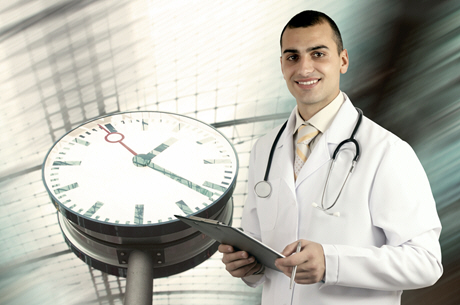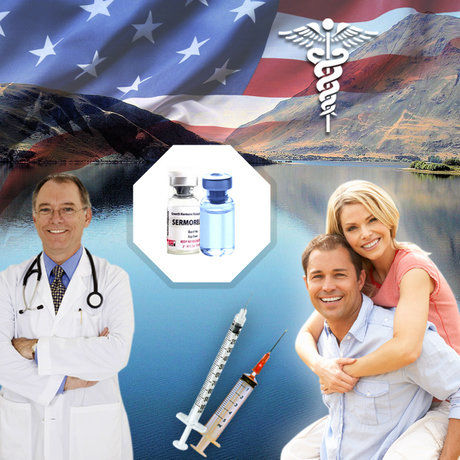Introduction to Hypogonadism
Hypogonadism, a condition characterized by the body's inability to produce sufficient testosterone, poses significant challenges to American males. This hormonal imbalance can manifest in various symptoms, including diminished libido, fatigue, and muscle loss, which can severely impact quality of life. Understanding the medical guidelines for managing hypogonadism is crucial for those affected and their healthcare providers.
Diagnosis of Hypogonadism
The journey to managing hypogonadism begins with a thorough diagnosis. American males experiencing symptoms suggestive of low testosterone levels should seek a comprehensive evaluation by an endocrinologist or a urologist. The diagnostic process typically involves a detailed medical history, physical examination, and blood tests to measure testosterone levels. It is essential to conduct these tests in the morning, as testosterone levels are typically highest at this time. Additionally, secondary causes such as pituitary disorders should be ruled out through further testing if primary hypogonadism is not confirmed.
Treatment Options for Hypogonadism
Upon confirmation of hypogonadism, a tailored treatment plan is essential. The primary approach to managing this condition is testosterone replacement therapy (TRT). TRT can be administered through various methods, including injections, gels, patches, or pellets. Each method has its advantages and potential side effects, which should be discussed with a healthcare provider to determine the most suitable option. It is also important to monitor treatment progress with regular follow-up appointments and blood tests to ensure testosterone levels are within the therapeutic range.
Lifestyle Modifications
In addition to medical interventions, lifestyle modifications play a crucial role in managing hypogonadism. American males are encouraged to adopt a balanced diet rich in nutrients that support hormonal health, such as zinc and vitamin D. Regular physical activity, particularly resistance training, can help improve muscle mass and overall well-being. Adequate sleep and stress management are also vital components of a holistic approach to managing hormonal imbalances.
Potential Risks and Considerations
While TRT can significantly improve symptoms of hypogonadism, it is not without risks. Potential side effects include acne, sleep apnea, and an increased risk of cardiovascular issues. It is essential for patients to have open discussions with their healthcare providers about these risks and to monitor their health closely during treatment. Additionally, TRT may affect fertility, so men planning to have children should consider sperm banking before starting therapy.
The Importance of Regular Monitoring
Regular monitoring is a cornerstone of effective hypogonadism management. American males undergoing TRT should have their testosterone levels checked every three to six months initially, and then annually once a stable dose is achieved. Monitoring also involves assessing for potential side effects and adjusting the treatment plan as necessary. This ongoing evaluation ensures that the therapy remains safe and effective over time.
Conclusion: Empowering American Males
Hypogonadism and hormonal imbalances can profoundly affect the lives of American males, but with the right medical guidance and lifestyle adjustments, it is possible to manage these conditions effectively. By understanding the diagnostic process, treatment options, and the importance of regular monitoring, individuals can take proactive steps towards improving their health and quality of life. As research continues to evolve, staying informed and working closely with healthcare providers will empower American males to navigate the challenges of hypogonadism with confidence and resilience.
Contact Us For A Fast And Professional Response

- Unveiling the Link Between Hypogonadism and Mental Health: A Comprehensive Guide for American Males [Last Updated On: February 19th, 2025] [Originally Added On: February 19th, 2025]
- Unveiling the Best Practices in Medical Monitoring for Hypogonadism in American Males [Last Updated On: February 20th, 2025] [Originally Added On: February 20th, 2025]
- Hypogonadism and Sleep Disorders: A Bidirectional Link in American Males [Last Updated On: March 4th, 2025] [Originally Added On: March 4th, 2025]
- Unveiling the Link Between Hypogonadism and Muscle Health in American Males: A Medical Perspective [Last Updated On: March 16th, 2025] [Originally Added On: March 16th, 2025]
- Navigating Hypogonadism in Men with Autoimmune Diseases: A Comprehensive Guide [Last Updated On: March 16th, 2025] [Originally Added On: March 16th, 2025]
- Exploring the Link Between Hypogonadism and Impaired Wound Healing in American Males [Last Updated On: March 16th, 2025] [Originally Added On: March 16th, 2025]
- Exploring the Interplay Between Hypogonadism and Parathyroid Health in American Males [Last Updated On: March 16th, 2025] [Originally Added On: March 16th, 2025]
- Hypogonadism in American Males: Diagnosis, Testosterone Therapy, and Individualized Treatment Considerations [Last Updated On: March 17th, 2025] [Originally Added On: March 17th, 2025]
- Exploring Hypogonadism and Chronic Pain: Diagnosis, Treatment, and Holistic Management [Last Updated On: March 17th, 2025] [Originally Added On: March 17th, 2025]
- Hypogonadism in American Males: Diagnosis, Treatment, and Education Essentials for Physicians [Last Updated On: March 18th, 2025] [Originally Added On: March 18th, 2025]
- Hypogonadism and Prostate Health: Understanding, Managing, and Preventing Complications [Last Updated On: March 19th, 2025] [Originally Added On: March 19th, 2025]
- Hypogonadism and Thyroid Dysfunction: Exploring the Correlation in American Males [Last Updated On: March 19th, 2025] [Originally Added On: March 19th, 2025]
- Hypogonadism and Autoimmune Disorders: Impact, Management, and Future Research in American Males [Last Updated On: March 20th, 2025] [Originally Added On: March 20th, 2025]
- Hypogonadism and Liver Health: A Comprehensive Guide for American Males [Last Updated On: March 21st, 2025] [Originally Added On: March 21st, 2025]
- Hypogonadism's Impact on American Men: Diagnosis, Treatment, and Quality of Life Enhancement [Last Updated On: March 21st, 2025] [Originally Added On: March 21st, 2025]
- Medical Imaging's Crucial Role in Diagnosing Hypogonadism in American Males [Last Updated On: March 21st, 2025] [Originally Added On: March 21st, 2025]
- Exercise as a Complementary Approach to Managing Hypogonadism in American Males [Last Updated On: March 21st, 2025] [Originally Added On: March 21st, 2025]
- Alternative Medicine Approaches for Managing Hypogonadism in American Males: A Review [Last Updated On: March 22nd, 2025] [Originally Added On: March 22nd, 2025]
- Managing Hypogonadism and Kidney Disease: Strategies for American Males [Last Updated On: March 22nd, 2025] [Originally Added On: March 22nd, 2025]
- Ethical Challenges in Hypogonadism Treatment: Balancing Benefits, Risks, and Societal Pressures [Last Updated On: March 23rd, 2025] [Originally Added On: March 23rd, 2025]
- Hypogonadism's Impact on Bone Health: Diagnosis, Treatments, and Emerging Therapies [Last Updated On: March 23rd, 2025] [Originally Added On: March 23rd, 2025]
- Hypogonadism and Hair Loss: Understanding Links and Exploring Treatments [Last Updated On: March 23rd, 2025] [Originally Added On: March 23rd, 2025]
- Hypogonadism's Impact on Respiratory Health in American Males: A Comprehensive Overview [Last Updated On: March 24th, 2025] [Originally Added On: March 24th, 2025]
- Advanced Medical Technologies Transform Hypogonadism Diagnosis in American Males [Last Updated On: March 24th, 2025] [Originally Added On: March 24th, 2025]
- Hypogonadism in American Males: Screening, Diagnosis, and Management Strategies [Last Updated On: March 24th, 2025] [Originally Added On: March 24th, 2025]
- Hypogonadism and Anemia: Diagnosis, Management, and Enhancing Men's Health Quality [Last Updated On: March 25th, 2025] [Originally Added On: March 25th, 2025]
- Hypogonadism's Neurological Risks: Cognitive Decline, Mood Disorders, and Neurodegenerative Diseases in American Males [Last Updated On: March 25th, 2025] [Originally Added On: March 25th, 2025]
- Monitoring Hypogonadism in Long-Term Care: Strategies and Technology for Enhanced Quality of Life [Last Updated On: March 25th, 2025] [Originally Added On: March 25th, 2025]
- Understanding Hypogonadism: Symptoms, Causes, and Comprehensive Management Strategies [Last Updated On: March 25th, 2025] [Originally Added On: March 25th, 2025]
- Hypogonadism's Impact on Skin Health and Testosterone Replacement Therapy Benefits [Last Updated On: March 25th, 2025] [Originally Added On: March 25th, 2025]
- Hypogonadism and Cancer Risk: Understanding the Link and Managing Health [Last Updated On: March 25th, 2025] [Originally Added On: March 25th, 2025]
- Hypogonadism's Impact on Muscle Health in American Males: Diagnosis, Treatment, and Research [Last Updated On: March 25th, 2025] [Originally Added On: March 25th, 2025]
- Hypogonadism and Allergies: Exploring Hormonal Links and Treatment Implications in American Males [Last Updated On: March 25th, 2025] [Originally Added On: March 25th, 2025]
- Hypogonadism and Hearing Loss: A Critical Connection in American Males [Last Updated On: March 25th, 2025] [Originally Added On: March 25th, 2025]
- Hypogonadism's Impact on Immune Function in American Males: Research and Clinical Insights [Last Updated On: March 26th, 2025] [Originally Added On: March 26th, 2025]
- Hypogonadism's Impact on Joint Health and Benefits of Testosterone Therapy [Last Updated On: March 26th, 2025] [Originally Added On: March 26th, 2025]
- Hypogonadism's Impact on Eye Health: Dry Eye, Cataracts, Glaucoma, and TRT Benefits [Last Updated On: March 26th, 2025] [Originally Added On: March 26th, 2025]
- Hypogonadism's Psychological Impact and the Crucial Role of Tailored Counseling [Last Updated On: March 26th, 2025] [Originally Added On: March 26th, 2025]
- Hypogonadism in American Males: Trends, Treatments, and Future Research Directions [Last Updated On: March 26th, 2025] [Originally Added On: March 26th, 2025]
- Hypogonadism and Headaches: Symptoms, Diagnosis, and Holistic Treatment Strategies [Last Updated On: March 26th, 2025] [Originally Added On: March 26th, 2025]
- Revolutionizing Hypogonadism Treatment: Innovations and Hope for American Men [Last Updated On: March 26th, 2025] [Originally Added On: March 26th, 2025]
- Hypogonadism's Impact on Gastrointestinal Health in American Males: A Comprehensive Analysis [Last Updated On: March 26th, 2025] [Originally Added On: March 26th, 2025]
- Medical Nutrition Therapy Enhances Hypogonadism Management in American Males [Last Updated On: March 27th, 2025] [Originally Added On: March 27th, 2025]
- Managing Hypogonadism: Roles of Endocrinologists, Urologists, and Multidisciplinary Teams [Last Updated On: March 27th, 2025] [Originally Added On: March 27th, 2025]
- Hypogonadism's Impact on Dental Health: Symptoms, Management, and Holistic Care [Last Updated On: March 27th, 2025] [Originally Added On: March 27th, 2025]
- Preventing Hypogonadism: Strategies for At-Risk American Men [Last Updated On: March 27th, 2025] [Originally Added On: March 27th, 2025]
- Hypogonadism in Transgender Men: Diagnosis, Treatment, and Personalized Care [Last Updated On: March 27th, 2025] [Originally Added On: March 27th, 2025]
- Medical Social Workers: Vital Support for American Males with Hypogonadism [Last Updated On: March 27th, 2025] [Originally Added On: March 27th, 2025]
- Hypogonadism's Emotional Impact on American Men: A Holistic Treatment Approach [Last Updated On: March 27th, 2025] [Originally Added On: March 27th, 2025]
- Hypogonadism's Impact on Blood Pressure: Causes, Links, and Management Strategies [Last Updated On: March 27th, 2025] [Originally Added On: March 27th, 2025]
- Hypogonadism and Vision: Symptoms, Diagnosis, and Management Strategies [Last Updated On: March 27th, 2025] [Originally Added On: March 27th, 2025]
- Hypogonadism's Impact on Cognitive Function in American Males: A Review and Outlook [Last Updated On: March 28th, 2025] [Originally Added On: March 28th, 2025]
- Managing Hypogonadism: Diagnosis, Treatment, and Lifestyle Strategies for American Males [Last Updated On: March 28th, 2025] [Originally Added On: March 28th, 2025]
- Medical Rehabilitation for Hypogonadism: Enhancing Recovery in American Males [Last Updated On: March 28th, 2025] [Originally Added On: March 28th, 2025]
- Hypogonadism and Cholesterol: Implications for Cardiovascular Health in American Males [Last Updated On: March 28th, 2025] [Originally Added On: March 28th, 2025]
- Hypogonadism's Impact on Balance: A Crucial Health Concern for American Males [Last Updated On: March 29th, 2025] [Originally Added On: March 29th, 2025]
- Exploring the Link Between Hypogonadism and GERD in American Males: Diagnosis and Treatment [Last Updated On: March 30th, 2025] [Originally Added On: March 30th, 2025]
- Hypogonadism's Impact on Urinary Health: Diagnosis, Management, and Prevention Strategies [Last Updated On: March 30th, 2025] [Originally Added On: March 30th, 2025]
- Hypogonadism's Link to Peripheral Neuropathy: Insights and Treatment Options for Men [Last Updated On: April 1st, 2025] [Originally Added On: April 1st, 2025]
- Managing Hypogonadism-Related Fatigue: Therapies and Lifestyle Solutions for American Males [Last Updated On: April 1st, 2025] [Originally Added On: April 1st, 2025]
- Hypogonadism Linked to Accelerated Skin Aging: Insights and Interventions for American Males [Last Updated On: April 1st, 2025] [Originally Added On: April 1st, 2025]
- Strategies to Enhance Adherence to Hypogonadism Treatment in American Males [Last Updated On: April 4th, 2025] [Originally Added On: April 4th, 2025]
- Hypogonadism's Impact on Sinus Health in American Males: A Comprehensive Overview [Last Updated On: April 5th, 2025] [Originally Added On: April 5th, 2025]
- Hypogonadism and Gallbladder Health: Exploring the Link in American Males [Last Updated On: April 7th, 2025] [Originally Added On: April 7th, 2025]
- Hypogonadism's Impact on Nail Health: Diagnosis, Treatment, and Lifestyle Management [Last Updated On: April 7th, 2025] [Originally Added On: April 7th, 2025]
- Medical Devices Revolutionize Hypogonadism Management in American Males [Last Updated On: April 8th, 2025] [Originally Added On: April 8th, 2025]
- Understanding Hypogonadism: Symptoms, Causes, and Treatment for American Males [Last Updated On: April 8th, 2025] [Originally Added On: April 8th, 2025]
- Hypogonadism Linked to Lymphatic Dysfunction in American Males: Study Insights [Last Updated On: April 10th, 2025] [Originally Added On: April 10th, 2025]
- Hypogonadism and Spleen Health: Exploring Links in American Males [Last Updated On: April 10th, 2025] [Originally Added On: April 10th, 2025]
- Hypogonadism's Impact on Ear Health: Symptoms, Diagnosis, and Management Strategies [Last Updated On: April 11th, 2025] [Originally Added On: April 11th, 2025]
- Understanding Hypogonadism: Nursing Roles in Diagnosis, Treatment, and Patient Care [Last Updated On: April 12th, 2025] [Originally Added On: April 12th, 2025]
- Managing Hypogonadism in American Males with Chronic Illnesses: Strategies and Insights [Last Updated On: April 12th, 2025] [Originally Added On: April 12th, 2025]
- Hypogonadism's Impact on Wound Healing in American Males: Causes and Management Strategies [Last Updated On: April 13th, 2025] [Originally Added On: April 13th, 2025]
- Medical Counseling: Essential for Managing Hypogonadism in American Males [Last Updated On: April 13th, 2025] [Originally Added On: April 13th, 2025]
- Hypogonadism and Parathyroid Health: Impacts on American Male Bone Health and Well-being [Last Updated On: April 15th, 2025] [Originally Added On: April 15th, 2025]
- Hypogonadism's Impact on Thymus Health: Diagnosis, Management, and Future Research [Last Updated On: April 16th, 2025] [Originally Added On: April 16th, 2025]
- Hypogonadism and Pancreatic Health: Diagnosis and Integrated Care Strategies for American Males [Last Updated On: April 16th, 2025] [Originally Added On: April 16th, 2025]
- Hypogonadism's Impact on Endocrine Balance in American Males: Symptoms, Effects, and Treatment [Last Updated On: April 17th, 2025] [Originally Added On: April 17th, 2025]
- Hypogonadism's Impact on Adrenal Function: Insights for American Males [Last Updated On: April 17th, 2025] [Originally Added On: April 17th, 2025]
- Hypogonadism and Autoimmune Diseases: Challenges and Management Strategies in American Males [Last Updated On: April 18th, 2025] [Originally Added On: April 18th, 2025]

















